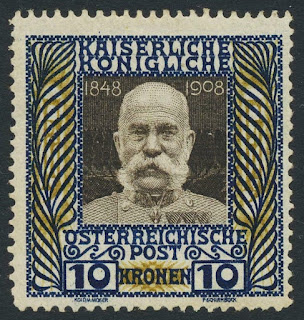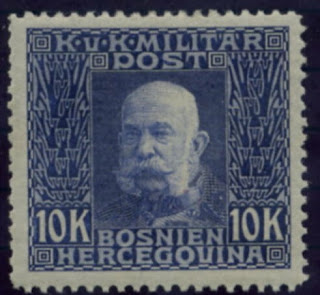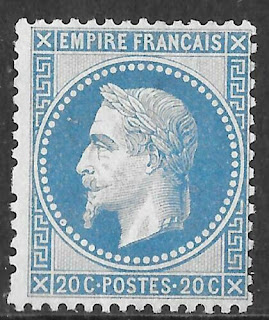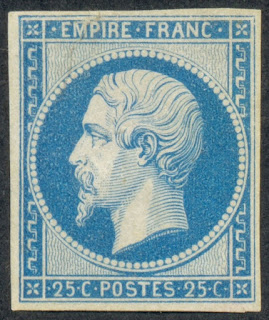Hernán Cortés de Monroy y Pizarro Altamirano, Marquis of the Valley of Oaxaca (1485 – December 2, 1547) was a Spanish Conquistador who led an expedition that caused the fall of the Aztec Empire and brought large portions of what is now mainland Mexico under the rule of the King of Castile in the early 16th century. Cortés was part of the generation of Spanish colonizers who began the first phase of the Spanish colonization of the Americas.
Born in Medellín, Spain, to a family of lesser nobility, Cortés chose to pursue adventure and riches in the New World. He went to Hispaniola and later to Cuba, where he received an encomienda (the right to the labor of certain subjects). For a short time, he served as alcalde (magistrate) of the second Spanish town founded on the island. In 1519, he was elected captain of the third expedition to the mainland, which he partly funded. His enmity with the Governor of Cuba, Diego Velázquez de Cuéllar, resulted in the recall of the expedition at the last moment, an order which Cortés ignored.
Arriving on the continent, Cortés executed a successful strategy of allying with some indigenous people against others. He also used a native woman, Doña Marina, as an interpreter. She later bore his first son. When the Governor of Cuba sent emissaries to arrest Cortés, he fought them and won, using the extra troops as reinforcements. Cortés wrote letters directly to the king asking to be acknowledged for his successes instead of being punished for mutiny. After he overthrew the Aztec Empire, Cortés was awarded the title of Marqués del Valle de Oaxaca, while the more prestigious title of Viceroy was given to a high-ranking nobleman, Antonio de Mendoza. In 1541 Cortés returned to Spain, where he died six years later of natural causes but embittered.
Because of the controversial undertakings of Cortés and the scarcity of reliable sources of information about him, it is difficult to describe his personality or motivations. Early lionizing of the conquistadores did not encourage deep examination of Cortés. Modern reconsideration has done little to enlarge understanding regarding him. As a result of these historical trends, descriptions of Cortés tend to be simplistic, and either damning or idealizing.
1848 – Franz Joseph I becomes Emperor of Austria.
Franz Joseph I or Francis Joseph I (German: Franz Joseph I.; 18 August 1830 – 21 November 1916) was Emperor of Austria, King of Hungary, King of Bohemia, and monarch of many other states of the Austro-Hungarian Empire, from 2 December 1848 to his death. From 1 May 1850 to 24 August 1866 he was also President of the German Confederation. He was the longest-reigning Emperor of Austria and King of Hungary, as well as the third-longest-reigning monarch of any country in European history, after Louis XIV of France and Johann II of Liechtenstein.
In December 1848, Emperor Ferdinand abdicated the throne at Olomouc, as part of Minister President Felix zu Schwarzenberg's plan to end the Revolutions of 1848 in Hungary. This allowed Ferdinand's nephew Franz Joseph to accede to the throne. Largely considered to be a reactionary, Franz Joseph spent his early reign resisting constitutionalism in his domains. The Austrian Empire was forced to cede its influence over Tuscany and most of its claim to Lombardy–Venetia to the Kingdom of Piedmont-Sardinia, following the Second Italian War of Independence in 1859 and the Third Italian War of Independence in 1866. Although Franz Joseph ceded no territory to the Kingdom of Prussia after the Austrian defeat in the Austro-Prussian War, the Peace of Prague (23 August 1866) settled the German Question in favour of Prussia, which prevented the Unification of Germany from occurring under the House of Habsburg.
Franz Joseph was troubled by nationalism during his entire reign. He concluded the Austro-Hungarian Compromise of 1867, which granted greater autonomy to Hungary and transformed the Austrian Empire into the Dual Monarchy of Austria-Hungary. He ruled peacefully for the next 45 years, but personally suffered the tragedies of the execution of his brother, the Emperor Maximilian of Mexico in 1867, the suicide of his only son and heir-apparent, Crown Prince Rudolf, in 1889, the assassination of his wife, Empress Elisabeth, in 1898, and the assassination of his nephew and heir-presumptive, the Archduke Franz Ferdinand, in 1914.
After the Austro-Prussian War, Austria-Hungary turned its attention to the Balkans, which was a hotspot of international tension because of conflicting interests with the Russian Empire. The Bosnian Crisis was a result of Franz Joseph's annexation of Bosnia and Herzegovina in 1908, which had been occupied by his troops since the Congress of Berlin (1878).
On 28 June 1914, the assassination of his nephew and heir-presumptive, Archduke Franz Ferdinand, in Sarajevo resulted in Austria-Hungary's declaration of war against the Kingdom of Serbia, which was an ally of the Russian Empire. That activated a system of alliances which resulted in World War I.
Franz Joseph died on 21 November 1916, after ruling his domains for almost 68 years as one of the longest-reigning monarchs in modern history. He was succeeded by his grandnephew Charles.
Stamps from Austria, Hungary and Bosnia depicting Franz Joseph I
1852 – Louis-Napoléon Bonaparte becomes Emperor of the French as Napoleon III.
Napoleon III (born Charles-Louis Napoléon Bonaparte; 20 April 1808 – 9 January 1873), the nephew of Napoleon I, was the first President of France from 1848 to 1852, and the last French monarch from 1852 to 1870. First elected president of the French Second Republic in 1848, he seized power in 1851, when he could not constitutionally be re-elected, and became the Emperor of the French. He founded the Second French Empire and was its only emperor until the defeat of the French army and his capture by Prussia and its allies in the Franco-Prussian War in 1870. He worked to modernize the French economy, rebuilt the center of Paris, expanded the overseas empire, and engaged in the Crimean War and the Second Italian War of Independence.
Napoleon III commissioned the grand reconstruction of Paris, carried out by his prefect of the Seine, Baron Haussmann. He launched similar public works projects in Marseille, Lyon and other French cities. Napoleon III modernized the French banking system, greatly expanded and consolidated the French railway system and made the French merchant marine the second largest in the world. He promoted the building of the Suez Canal and established modern agriculture, which ended famines in France and made France an agricultural exporter. Napoleon III negotiated the 1860 Cobden–Chevalier free trade agreement with Britain and similar agreements with France's other European trading partners. Social reforms included giving French workers the right to strike and the right to organize. The first women students were admitted at the Sorbonne, and women's education greatly expanded as did the list of required subjects in public schools.
In foreign policy, Napoleon III aimed to reassert French influence in Europe and around the world. He was a supporter of popular sovereignty and of nationalism. In Europe, he allied with Britain and defeated Russia in the Crimean War (1853–56). His regime assisted Italian unification by defeating the Austrian Empire in the Franco-Austrian War, and as its deferred reward later annexed Savoy and the County of Nice. At the same time, his forces defended the Papal States against annexation by Italy. Napoleon III doubled the area of the French overseas empire in Asia, the Pacific and Africa, however his army's intervention in Mexico, which aimed to create a Second Mexican Empire under French protection, ended in total failure.
From 1866, Napoleon had to face the mounting power of Prussia as its Chancellor Otto von Bismarck sought German unification under Prussian leadership. In July 1870, Napoleon entered the Franco-Prussian War without allies and with inferior military forces. The French army was rapidly defeated and Napoleon III was captured at the Battle of Sedan. The French Third Republic was proclaimed in Paris and Napoleon went into exile in England, where he died in 1873.
Some stamps of France and France Colonies general issues depicting Emperor Napoleon III
1825 Born: Pedro II of Brazil (d. 1891)
Dom Pedro II (English: Peter II; 2 December 1825 – 5 December 1891), nicknamed "the Magnanimous", was the second and last monarch of the Empire of Brazil, reigning for over 58 years. He was born in Rio de Janeiro, the seventh child of Emperor Dom Pedro I of Brazil and Empress Dona Maria Leopoldina and thus a member of the Brazilian branch of the House of Braganza. His father's abrupt abdication and departure to Europe in 1831 left the five year-old as Emperor and led to a grim and lonely childhood and adolescence, obliged to spend his time studying in preparation for rule. He knew only brief moments of happiness and encountered few friends of his age. His experiences with court intrigues and political disputes during this period greatly affected his later character; he grew into a man with a strong sense of duty and devotion toward his country and his people, yet increasingly resentful of his role as monarch.
Pedro II inherited an empire on the verge of disintegration, but he turned Brazil into an emerging power in the international arena. The nation grew to be distinguished from its Hispanic neighbors on account of its political stability, zealously guarded freedom of speech, respect for civil rights, vibrant economic growth, and form of government—a functional representative parliamentary monarchy. Brazil was also victorious in the Platine War, the Uruguayan War, and the Paraguayan War, as well as prevailing in several other international disputes and domestic tensions. Pedro II steadfastly pushed through the abolition of slavery despite opposition from powerful political and economic interests. A savant in his own right, the Emperor established a reputation as a vigorous sponsor of learning, culture, and the sciences, and he won the respect and admiration of people such as Charles Darwin, Victor Hugo, and Friedrich Nietzsche, and was a friend to Richard Wagner, Louis Pasteur, and Henry Wadsworth Longfellow, among others.
There was no desire for a change in the form of government among most Brazilians, but the Emperor was overthrown in a sudden coup d'état that had almost no support outside a clique of military leaders who desired a form of republic headed by a dictator. Pedro II had become weary of emperorship and despaired over the monarchy's future prospects, despite its overwhelming popular support. He did not allow his ouster to be opposed and did not support any attempt to restore the monarchy. He spent the last two years of his life in exile in Europe, living alone on very little money.
The reign of Pedro II thus came to an unusual end—he was overthrown while highly regarded by the people and at the pinnacle of his popularity, and some of his accomplishments were soon brought to naught as Brazil slipped into a long period of weak governments, dictatorships, and constitutional and economic crises. The men who had exiled him soon began to see in him a model for the Brazilian republic. A few decades after his death, his reputation was restored and his remains were returned to Brazil with celebrations nationwide. Historians have regarded the Emperor in an extremely positive light and several have ranked him as the greatest Brazilian.











No comments:
Post a Comment